National
Liberal MPs stop police commissioner from testifying about SNC-Lavalin scandal
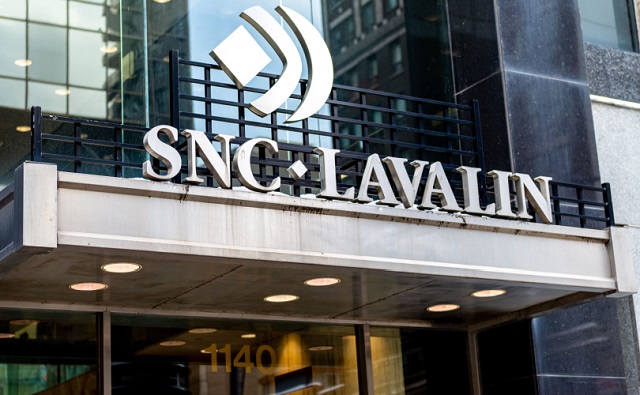
From LifeSiteNews
RCMP commissioner Michael Duheme was set to testify about whether Justin Trudeau blocked police from obtaining cabinet documents in the SNC-Lavalin affair when MPs on the ethics committee voted 7-3 to adopt a Liberal motion to abruptly adjourn the meeting
Canadian Liberal MPs on the ethics committee voted to stop the Royal Canadian Mounted Police (RCMP) commissioner from testifying about a bribery scandal involving the large Canadian engineering firm SNC-Lavalin and the federal Liberal government of Prime Minister Justin Trudeau.
RCMP commissioner Michael Duheme was set to testify about the bribery scandal to speak about whether Trudeau blocked the police from obtaining certain cabinet documents, which might have implicated him regarding his obstruction of justice charges that stemmed from the SNC-Lavalin affair.
Liberal, New Democrat (NDP), and Bloc Québécois MPs on the ethics committee voted 7-3 to adopt a Liberal motion to abruptly adjourn the meeting with Duheme only minutes after it began.
Conservative MP Michael Barrett called the abrupt meeting cancellation “unacceptable.”
“Witnesses were to give testimony and now we have government members looking to shut down a hearing on a very serious matter with respect to a criminal investigation into the Prime Minister and we have the Commissioner of the RCMP at this table,” Barrett said.
Liberal MP Mona Fortier, who serves as the ethics committee vice chair, claimed the SNC-Lavalin scandal had not been “discussed whatsoever by the committee.”
“I think the committee should at least have had the opportunity to debate the motion presented in due form. I don’t think this is necessarily the best way to go forward, having committees unable to make their decisions. So based on this reasoning, I would like to adjourn the meeting,” she said.
In June, LifeSiteNews reported on how the RCMP denied it was looking into whether Trudeau and his cabinet committed obstruction of justice concerning the SNC-Lavalin bribery scandal.
SNC-Lavalin was faced with charges of corruption and fraud concerning about $48 million in payments made to officials with the Libyan government between 2001 and 2011. The company had hoped to be spared both a trial and prosecution deferred prosecution agreement.
However, then-Attorney General Jody Wilson-Raybould did not go along with Trudeau’s plan, which would have allegedly appeared to help SNC-Lavalin. Back in 2019, she contended that both Trudeau and his top Liberal officials had inappropriately applied pressure to her for four months to directly intervene in the criminal prosecution relating to corruption and bribery charges connected to SNC’s government contracts in Libya.
Wilson-Raybould testified in early 2019 to Canada’s justice committee that she believed she was moved from her then-justice cabinet posting to veterans’ affairs due to the fact she did not grant a request from SNC-Lavalin for a deferred prosecution agreement rather than a criminal trial.
Of note is that a criminal conviction would have banned the company from getting any government contracts for 10 years.
Trudeau flat-out denied it was being investigated by the RCMP.
A little less than four years ago, Trudeau was found to have broken the federal ethics laws, or Section 9 of the Conflict of Interest Act, for his role in pressuring Wilson-Raybould.
MPs were hoping Duheme’s testimony would clear up many questions
Conservative MPs were hoping that Duheme’s testimony would have cleared up more questions about the SNC-Lavalin scandal after the group Democracy Watch on October 16 revealed a host of records regarding it.
These records show that the RCMP was stopped by Trudeau’s top cabinet members via a restricted disclosure order. This order stated that authorization to waive solicitor-client privilege would not be allowed in regard to information concerning communications between Wilson-Raybould and the director of public prosecutions regarding SNC-Lavalin.
The records released by Democracy Watch involve about 1,815 pages of records from 19 documents that the RCMP recently disclosed after an Access to Information Act (ATIA) request.
In July 2022, the group filed an Access to Information Act (ATIA) request with the RCMP about the SNC-Lavalin affair and Trudeau.
As for SNC-Lavalin, which now goes by the name “AtkinsRéalis,” in 2019 it pleaded guilty to committing fraud in a Québec Provincial Court and was hit with a $280 million fine. Company executives also admitted that they had paid some $47.7 million in bribes to get contracts in Libya.
After Duheme was blocked from testifying, Conservative MPs Barrett and Larry Brock said in a press release that Trudeau had “refused to hand over documents or let individuals who were involved in the affair testify” after it was discovered he broke Canada’s ethics laws.
Addictions
Liberals shut down motion to disclose pharma payments for Trudeau’s ‘safe supply’ drug program
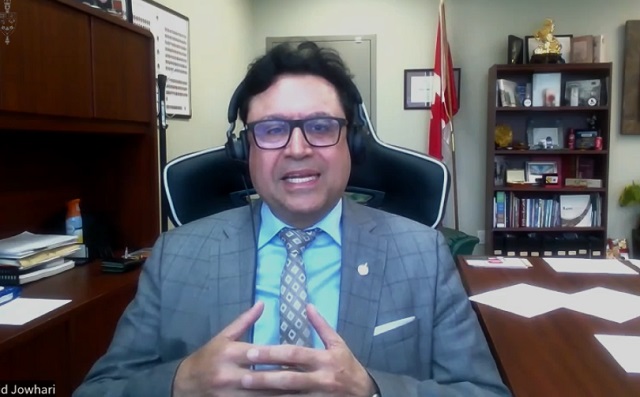
Liberal MP Majid Jowhari
From LifeSiteNews
The motion comes as RCMP testified in April that Trudeau’s taxpayer funded ‘safer supply’ drugs are being diverted to the black market.
Liberal Members of Parliament (MPs) resisted a motion to disclose payments made to pharmaceutical companies for “safe supply” opioids.
During a May 15 session in the House of Commons, Liberal MPs blocked a vote on a motion by Conservative MP Garnett Genuis to publish the contacts between Prime Minister Justin Trudeau’s government and pharmaceutical companies for “safe supply” opioids.
“Allow the public to see the contracts,” Genuis told the Commons government operations committee, questioning, “What do you have to be afraid of?”
“There are contracts involving this government and big pharmaceutical companies involved in producing and selling dangerous hard drugs which then end up on our streets,” he argued.
“Big pharmaceutical companies are involved in supplying hard drugs that are used as part of the government’s so-called ‘safe supply’ program,” Genuis continued. “These programs are a failure. We oppose them. In any event, we believe the public has a right to see the contracts.”
However, a committee vote on his motion was quickly blocked by Liberal MPs.
“I don’t think this is a motion we should move forward with,” Liberal MP Majid Jowhari said.
“I think we should go back and look at it and say our objective is to get an understanding of the source of safe supply and how it is being procured, which is different than going and saying, ‘Give us all the contracts,’” he continued.
Similarly, Liberal MP Irek Kusmierczyk claimed the request was a political tactic, saying, “They are against safe supply and safe consumption sites. That is clearly spelled out by my Conservative colleagues.”
Genuis’ request comes as the Royal Canadian Mounted Police (RCMP) testified in April that Trudeau’s taxpayer funded “safer supply” drugs are being diverted to the black market.
“Organized crime groups are trafficking not only illicit substances but any prescription drugs they can get their hands on,” Deputy Commissioner Dwayne McDonald, commander of the RCMP in British Columbia, testified.
Genuis put forward a motion asking that the committee “order the production of all contracts, agreements or memoranda of understanding to which the Government of Canada is a party signed since January 1, 2016” concerning the purchase of opioids.
Liberals’ refusal to release the contracts comes as the Trudeau government recently rejected a proposal from the Alberta government to add a “unique chemical identifier” to drugs offered to users under “safe-supply” programs so that authorities could track its street sales.
Indeed, the Trudeau government seems determined to pretend their “safe-supply” programs are a success despite the rising deaths and crime in cities that have adopted their policy.
However, the program proved such a disaster in British Columbia that the province recently requested Trudeau recriminalize drugs in public spaces. Nearly two weeks later, the Trudeau government announced it would “immediately” end the province’s drug program.
Beginning in early 2023, Trudeau’s federal policy, in effect, decriminalized hard drugs on a trial-run basis in British Columbia.
Under the policy, the federal government began allowing people within the province to possess up to 2.5 grams of hard drugs without criminal penalty, but selling drugs remained a crime.
Since being implemented, the province’s drug policy has been widely criticized, especially after it was found that the province broke three different drug-related overdose records in the first month the new law was in effect.
The effects of decriminalizing hard drugs in various parts of Canada has been exposed in Aaron Gunn’s recent documentary, Canada is Dying, and in U.K. Telegraph journalist Steven Edginton’s mini-documentary, Canada’s Woke Nightmare: A Warning to the West.
Gunn says he documents the “general societal chaos and explosion of drug use in every major Canadian city.”
“Overdose deaths are up 1,000 percent in the last 10 years,” he said in his film, adding that “(e)very day in Vancouver four people are randomly attacked.”
Economy
Canadians experiencing second-longest and third steepest decline in living standards in last 40 years

From the Fraser Institute
From 2019 to 2023, Canadian living standards declined—and as of the end of 2023, the decline had not yet ended, finds a new study published today by the Fraser Institute, an independent, non-partisan Canadian public policy think-tank.
“Despite claims to the contrary, living standards are declining in Canada,” said Grady Munro, policy analyst at the Fraser Institute and co-author of Changes in Per-Person GDP (Income): 1985 to 2023.
Specifically, from April 2019 to the end of 2023, inflation-adjusted per-person GDP, a broad measure of living standards, declined from $59,905 to $58,111 or by 3.0 per cent. This decline is exceeded only by the decline in 1989 to 1992 (-5.3 per cent) and 2008 to 2009 (-5.2 per cent). In other words, it’s the third-steepest decline in 40 years.
Moreover, the latest decline (which comprises 18 fiscal quarters) is already the second-longest in the last 40 years, surpassed only by the decline from 1989 to 1994 (which lasted 21 quarters). And if not stabilized in 2024, this decline could be the steepest and longest in four decades.
“The severity of the decline in living standards should be a wake-up call for policymakers across Canada to immediately enact fundamental policy reforms to help spur economic growth and productivity,” said Jason Clemens, study co-author and executive vice-president at the Fraser Institute.
- Real GDP per person is a broad measure of incomes (and consequently living standards). This paper analyzes changes in quarterly per-person GDP, adjusted for inflation from 1985 through to the end of 2023, the most recent data available at the time of writing.
- The study assesses the length (number of quarters) as well the percentage decline and the length of time required to recover the income lost during the decline.
- Over the period covered (1985 to 2023), Canada experienced nine periods of decline and recovery in real GDP per person.
- Of those nine periods, three (Q2 1989 to Q3 1994, Q3 2008 to Q4 2011, and Q2 2019 to Q2 2022) were most severe when comparing the length and depth of the declines along with number of quarters required for real GDP per person to recover.
- The experience following Q2 2019 is unlike any decline and recovery since 1985 because, though per person GDP recovered for one quarter in Q2 2022, it immediately began declining again and by Q4 2023 remains below the level in Q2 2019.
- This lack of meaningful recovery suggests that since mid-2019, Canada has experienced one of the longest and deepest declines in real GDP per person since 1985, exceeded only by the decline and recovery from Q2 1989 to Q3 1994.
- If per-capita GDP does not recover in 2024, this period may be the longest and largest decline in per-person GDP over the last four decades.
 Read the Full Report
Read the Full Report
Authors:
-

 COVID-192 days ago
COVID-192 days agoCOVID Lab Leak: Over four later, EcoHealth Alliance funding is finally suspended
-
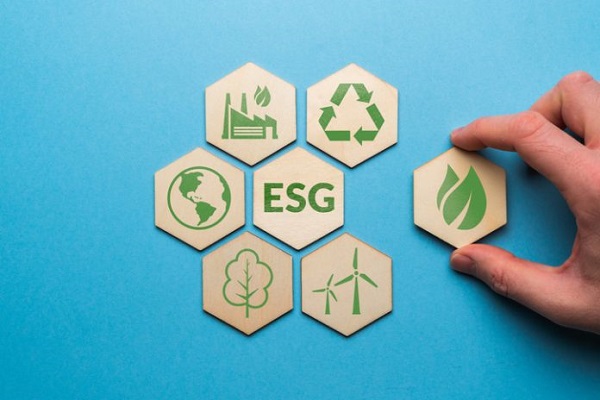
 Business2 days ago
Business2 days agoESG Puppeteers
-

 COVID-192 days ago
COVID-192 days agoNIH Quietly Altered Definition For Gain-Of-Function Research On Its Website, Former Fauci Aide Confirms
-
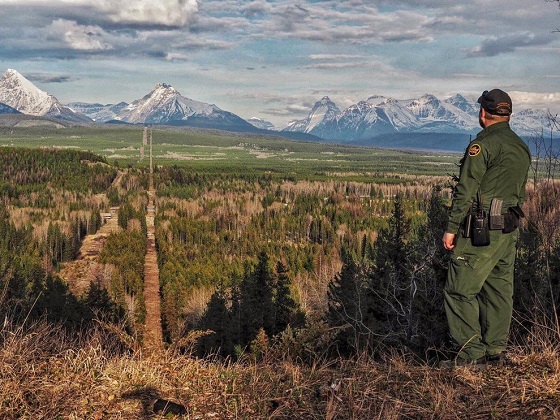
 Crime2 days ago
Crime2 days agoThe US Canadian border: Greatest number of terrorist watch list individuals being apprehended at northern border
-

 illegal immigration1 day ago
illegal immigration1 day agoSuspected Terrorists Illegally Entering US Up Over 2,500% Under Biden From Trump Era
-
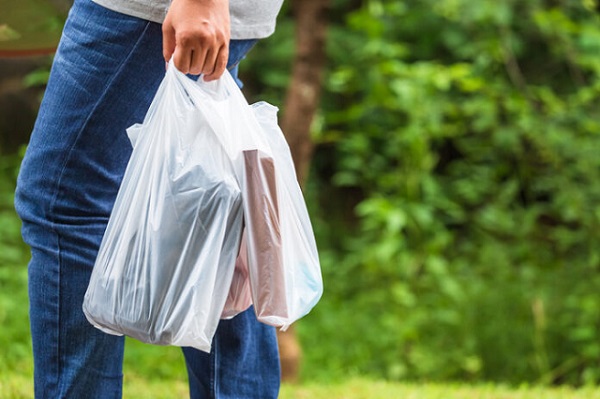
 Business1 day ago
Business1 day agoOttawa should end war on plastics for sake of the environment
-

 Opinion21 hours ago
Opinion21 hours agoOrdinary working Canadians are not buying into transgender identity politics
-

 Energy21 hours ago
Energy21 hours agoNew Report Reveals Just How Energy Rich America Really Is










